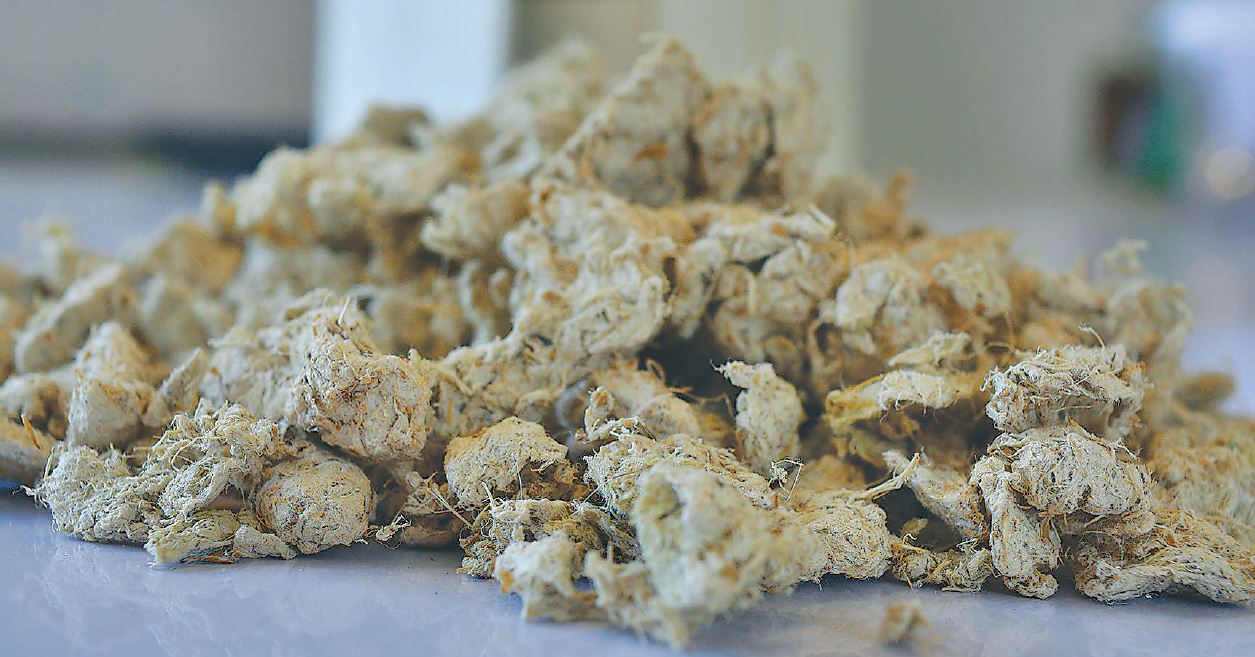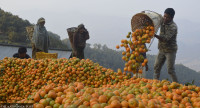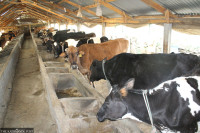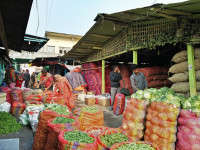Spotlight
Ecoorb makes eco-friendly paper from elephant dung, it’s also helping cut plastic usage
The Nepali company went into production earlier this year.
Krishana Prasain
When a ten-to-five job does not make one happy, no matter how much the company is paying for your work, people sometimes turn to creative and innovative vocations. Sunny Rajopadhyaya, co-founder of Ecoorb is one such entrepreneur.
Rajopadhyaya, who was working in digital marketing management in an IT company was getting paid more than Rs30,000 with everything seemingly going well for him, yet he was neither satisfied nor happy.
“If you are not satisfied with the job, no matter how much you get paid, it does not count,” said Rajopadhyaya. “Initially, the only motivation was money. Later, I started feeling that if I do not start off on my own now, it will be too late.”
That thought changed him to become an entrepreneur.
Though Rajopadhyaya now has to think five times before spending Rs4,000 outside his business, he is happy with what he is doing. “When you start doing your business, you think twice before spending on any of the miscellaneous things.”
Lokta paper is the first thing that comes in mind when people talk about an eco-friendly paper. But, Sunny Rajopadhyaya came up with the option of producing eco-friendly paper made from elephant dung and recycled paper.
Bean Voyage, a nonprofit organization in Costa Rica printed their brochure in the paper produced by Ecoorb, while Rajopadhyaya is in discussion with some Chinese companies to supply notebooks. It shows that the products of Ecoorb are being gradually introduced in the international as well as the national markets.

The concept of making paper made from elephant dung first came to Rajopadhyaya’s mind during his frequent visits to Sauraha in 2016. Though he had heard about papers made from elephant dung, he never thought he will be making a business out of it. “I was not sure it was possible to execute here,” says Rajopadhyaya.
During his visit to Sauraha, he found that elephant dung has become a major problem there. Curious about how people were managing the problem, the locals told him that a few of them were using the dung as a compost fertilizer, while the remainder was going waste.
With an initial investment of about Rs25,000, he gave a start to his idea by making a prototype in Sauraha. “As I did not have equipment at the time, I used a blender and made it manually,” he said.
Rajopadhyaya was in search of funds for his business. He also planned to take part in the incubation programme of Nepal Communitarian, which later funded him with around Rs50,000.
When Rajopadhyaya first started producing paper by using elephant dung, the paper used to look yellow or green sometimes, depending on what the elephant ate. As the paper needs to look white, he used 5 percent recycled paper.
“There was no other option other than going for lokta paper, so we grabbed the opportunity and people are now approaching us,” he said.
Jonej Shakya, joined Rajopadhyaya’s business about five months back. He is also his college friend and invested Rs50,000 in the venture. “I liked the business idea of Sunny, which is eco-friendly, sustainable and creating impact in the business.”
Rajopadhyaya and Shakya today, are not only partners in the business, but also college friends who had worked together at an IT company.
Rajopadhyaya, who is also pursuing his MBA from Kings College, said it takes 4-5 days to process the paper and dung into the usable fibre, which produces 70kg-100 kg of paper. The processing takes place in Sauraha and then it’s brought to Kathmandu. The cost of lokta paper and elephant dung paper is similar. For printing papers, 20 percent recycled paper is used along with 80 percent elephant dung. “For high-quality paper, we use Argeli fibre as well.”
Ecoorb has been producing 700-1,000 different products and has been making Rs100,000-150,000 on average, monthly, he said.
For the commercial production, Ecoorb has coordinated with Green Society Nepal where they have the equipment. “As we do not have that level of investment, we collaborated with Green Nepal,” said Rajopadhyaya. Green Society Nepal was producing lokta paper and was not performing well in the market, he added. Ecoorb took over the whole management and started producing.
The organization has already 5-6 women working for it who now are making different products as well.
“The demand for visiting cards is high,” Rajopadhyaya said. Asia Foundation, Vesper Wine, Saporor Japanese Restaurant Natural Earth and Nuga are some of the companies that have purchased products from Ecoorb. He said that people are ordering visiting cards on a trial basis and may place orders for other products. “After being happy with our product, some of them are reaching to subscribe to our other products.”
Word of mouth has helped him market his products. Besides, Nepal Communitarian has also been supporting him to build a network, Rajopadhyaya said.
Rajopadhyaya and Shakya don’t want to make their products high-end, which is only used for gift-wrapping luxury stuff. “We want it to be a commercial product,” said Rajopadhyaya.
Currently, their product focuses on making visiting cards, notebooks and packaging paper. Both co-founders plan to expand their product range and market in the future. The start-up plans to produce 500kg or 1,000 kg of paper in the future. “We also plan to make toilet paper out of it but it needs a big manufacturing plant,” Rajopadhyaya said.
The company co-founders feel that competing with lokta paper is a major challenge as both are eco-friendly and selling the products is challenging. “To overcome the challenge, we need to supply to the bigger players,” says Rajopadhyaya.
It has been around seven months since their products started arriving in the market.
“Till this time, we have not taken any salary from the company. We are reinvesting the income generated from it,” Rajopadhyaya said.
The production of paper is also helping in managing elephant dung in Sauraha, which is one of their biggest problems, Rajopadhyaya said. As well, their eco-friendly products are helping in cutting down dependence on plastic.




 7.12°C Kathmandu
7.12°C Kathmandu










